Happy hours are not observed: the unique Pirahã people who live only for today (16 photos)
Despite the fact that modern man has at his disposal almost unlimited access to a huge store of knowledge, the opportunity to travel, learn new cultures and exchange experiences with other peoples, there are still plenty of corners on planet Earth that a reasonable person either knows nothing about or knows , but only by hearsay - somewhere I saw/heard/read 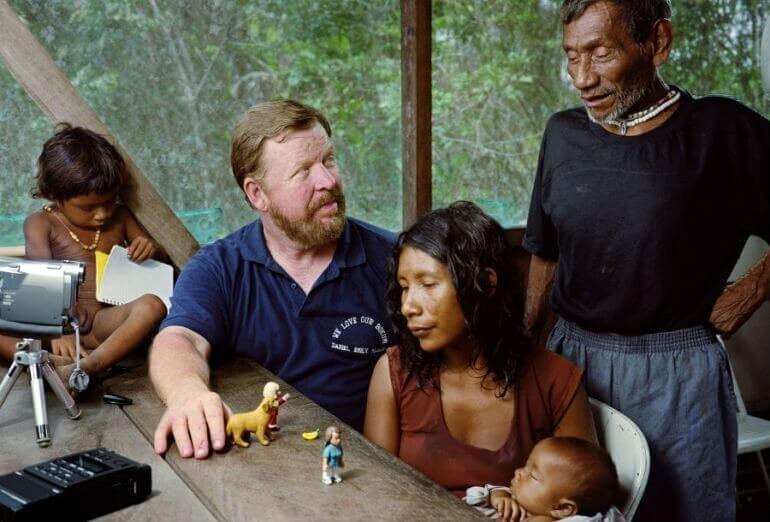
. And, meanwhile, it is there, in remote areas, so to speak, in the lap of nature, that truly unique people often live who are able to surprise the spoiled modern man in the street with their attitude to life. 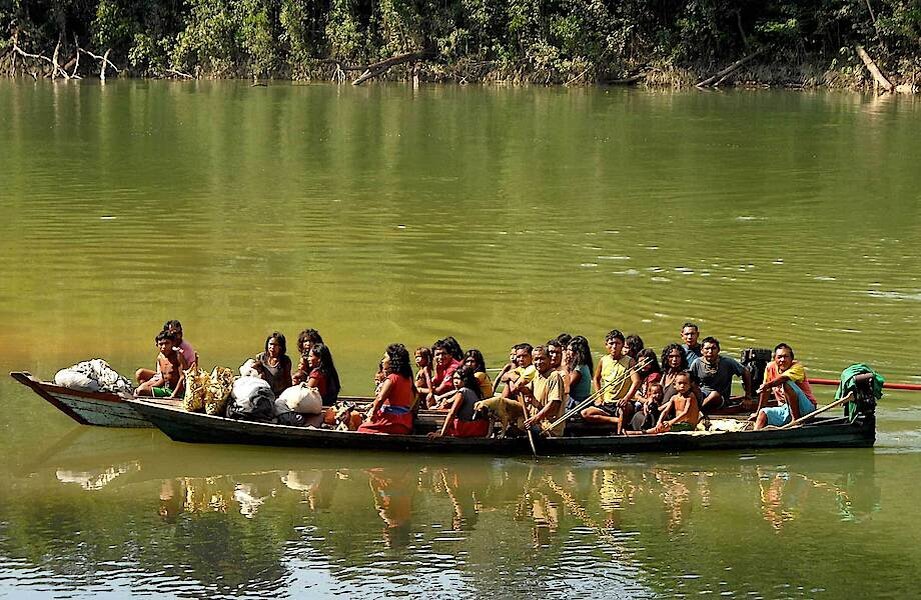
Pirahã people
Today I will tell you about the Pirahans or Pirahas - an amazing people living on the Maisi River in modern Brazil, who live only for today. Representatives of this people have no idea about yesterday and tomorrow, since for them there is only today - here and now; they don’t keep calendars, don’t keep track of time, don’t store food for future use, change their names every two years and are very afraid of sleeping at night. 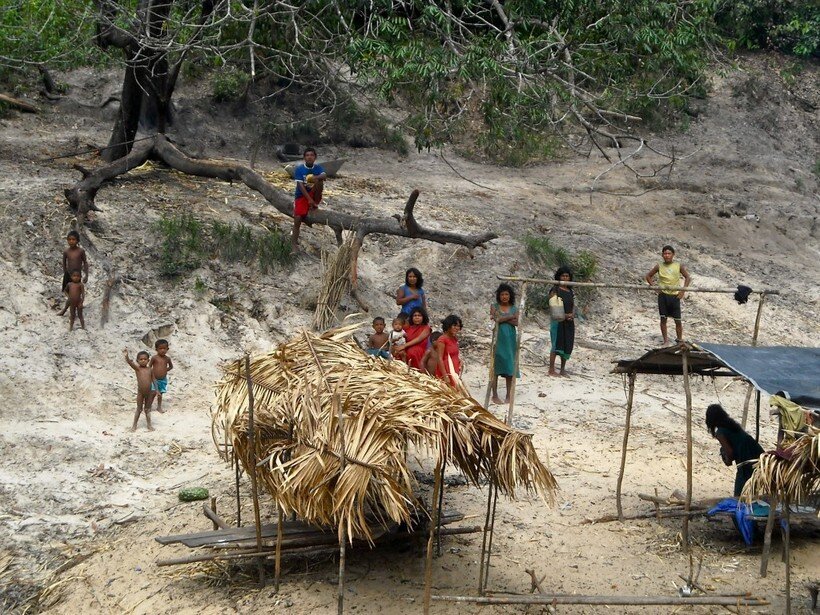
Pirahã people
The number of the Pirahan people, whose main occupation is hunting and gathering, is very small - only 400 people, but scientists around the world, from ethnographers to linguists, show extremely great interest in the representatives of this people, caused primarily by their language. 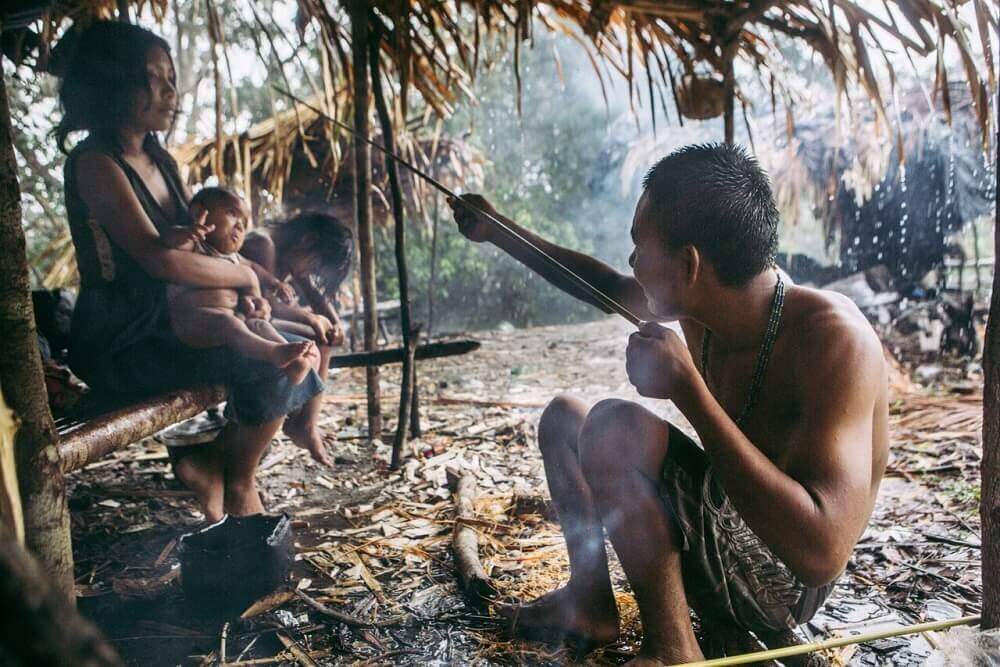
Pirahã people
The fact is that after thoroughly studying the language of the Pirahã people, researchers came to the conclusion that this language does not change over time, that is, it can only be used to talk about what is happening here and now. And this feature makes the Pirahã language closer to the methods of communication of animals than of modern people. 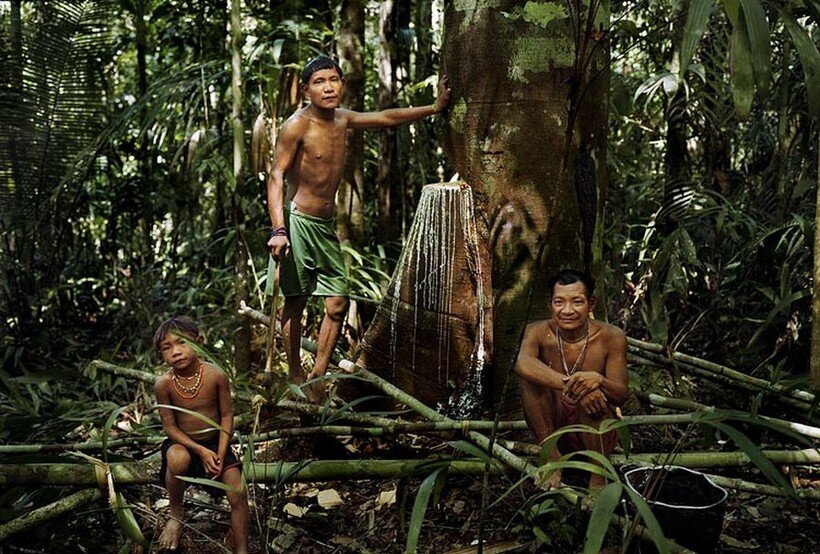
Pirahã people
Another feature of the life of the Pirahans, which arouses genuine interest among scientists around the world, is the ability of this people to do without sleep. No, of course, not a single person, even the most unique person, can live without a night's rest - in the end, he will either fall exhausted and fall asleep, or fall dead - there are few options. 
Pirahã people
So, representatives of the Pirahan people try to reduce the amount of time spent sleeping to a minimum. They are openly afraid of prolonged sleep, because they believe that this process is extremely unsafe: firstly, sleep takes away strength, and secondly, it takes away youth. The Pirahan Indians believe that upon waking up after a long sleep, a person becomes completely different. 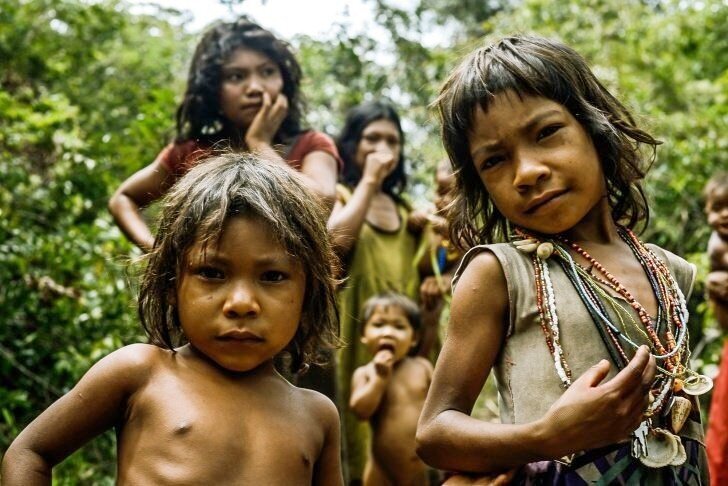
Pirahã people
In addition, fear of sleep is purely practical in nature. The Amazon forests, as you might guess, are literally teeming with all sorts of dangerous and mostly poisonous creatures, so sound and prolonged sleep makes a person vulnerable to the forces of nature. 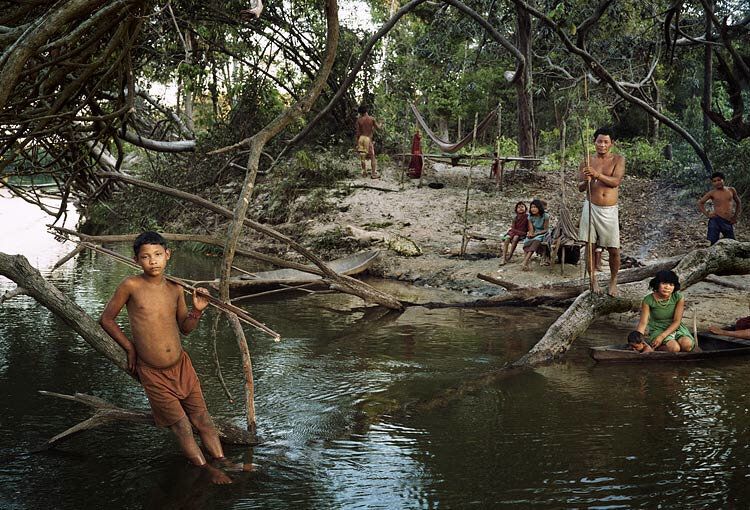
Pirahã people
By the way, the peculiarity of language to talk only about what is happening here and now extends to the entire everyday life of the people. The Pirahã Indians are best characterized by the well-known expression “happy people don’t watch the clock,” because they really don’t keep track of time, they don’t have any specific agenda to which they would count days, hours or minutes, they are never in a hurry and They have no idea what will happen tomorrow, because they live for today. 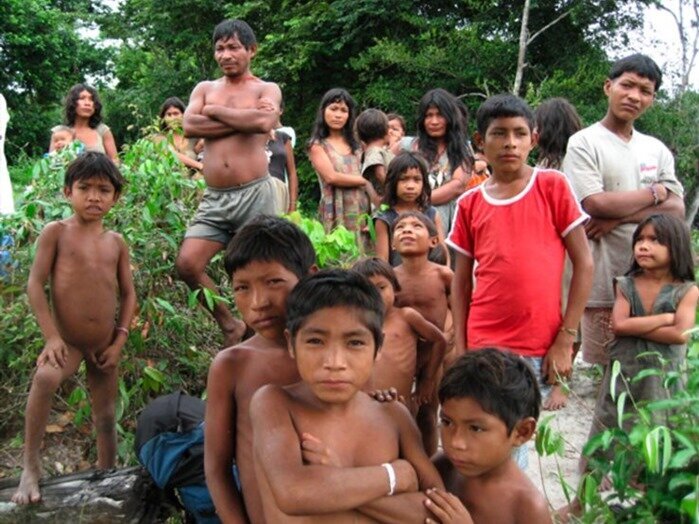
Pirahã people
And yes, an important point: the Pirahã Indians believe only what they see with their own eyes. By the way, it was precisely this life principle that did not allow the missionaries who arrived on their lands in the 50s of the last century to instill in the Indians an interest in the Bible and Christianity in general. The missionaries told representatives of the Pirahan people about the salvation of souls in the distant future, but this made no sense, because for them no future existed. 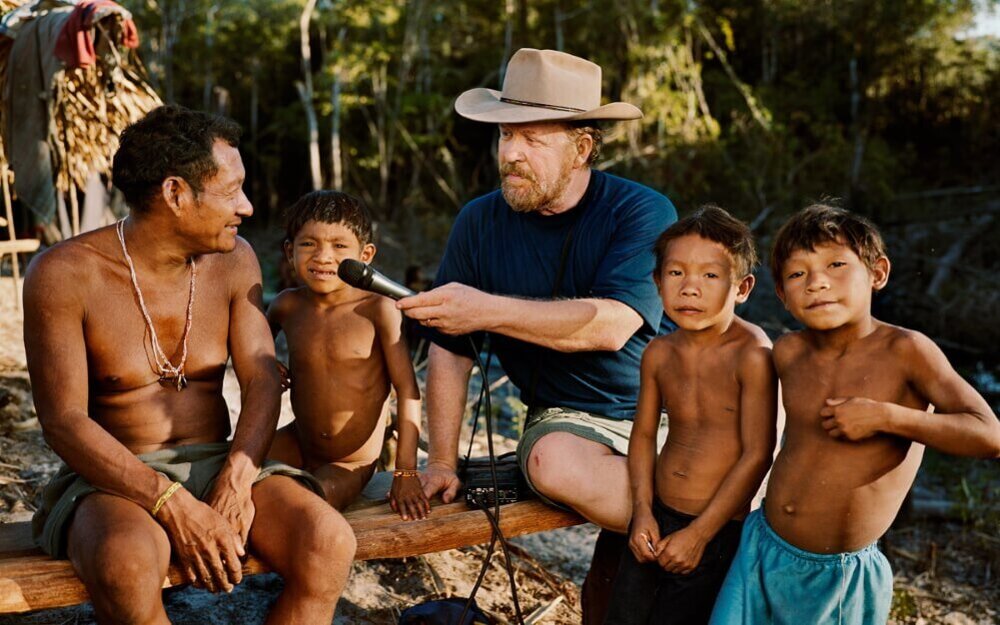
The Pirahã people and American linguist Daniel Everett
The missionaries told the Indians about Christ and his deeds, but none of the natives could understand this, because none of them saw any Christ with their own eyes. And besides, the missionaries did not meet him personally, but then how can they be trusted?! Moreover, the Pirahã people were absolutely not interested in the achievements of Western civilization, therefore, as you might guess, the educational mission failed miserably. 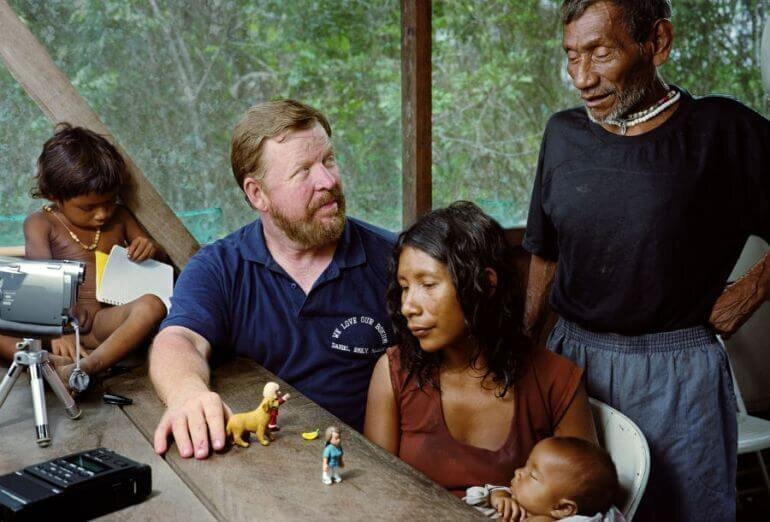
The Pirahã people and American linguist Daniel Everett
And, nevertheless, it cannot be categorically stated that the Pirahã people have no idea at all about the passage of time. The fact is that, according to tradition, every two years, representatives of this people change their name, which corresponds to the beginning of a new period in their life. From which it follows that they still have some kind of understanding of time... somehow they measure these two years until the next name change! 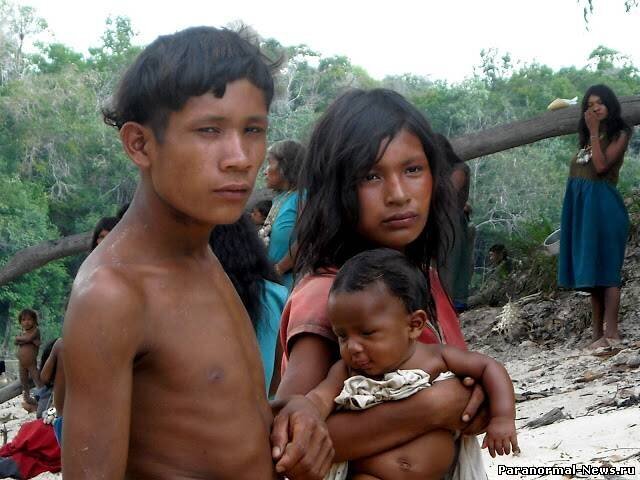
Pirahã people
And in connection with such a floating idea of u200bu200bthe concept of “time”, the Pirahã people almost completely lack the habit of storing food for future use. On the other hand, why put off food for tomorrow if you can eat it today?! We live here and now! 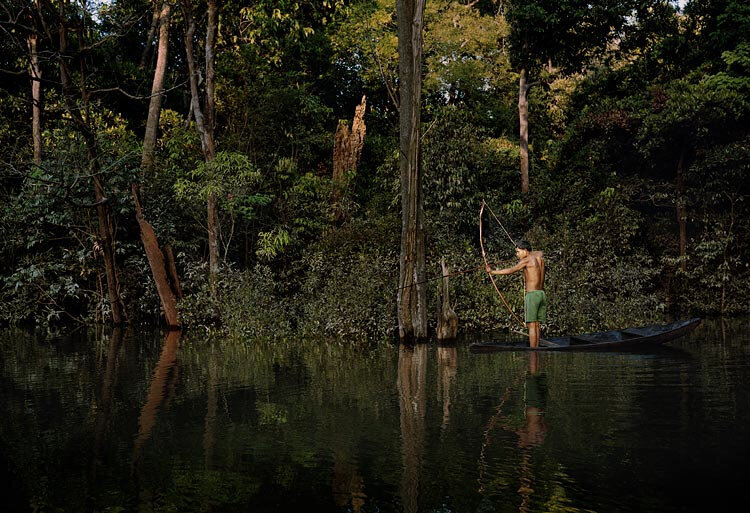
Pirahã people
Therefore, the Pirahã Indians eat all the fish they catch and all the fruits and nuts they collect at once. And in general, they treat food very philosophically, not considering it something necessary, much less vital. Didn't eat today? It's OK! Eat tomorrow...well, or when the opportunity presents itself. Food for the Pirahan people is akin to sleep: they don’t like to spend a lot of time on it, they simply don’t need it and are not interested! 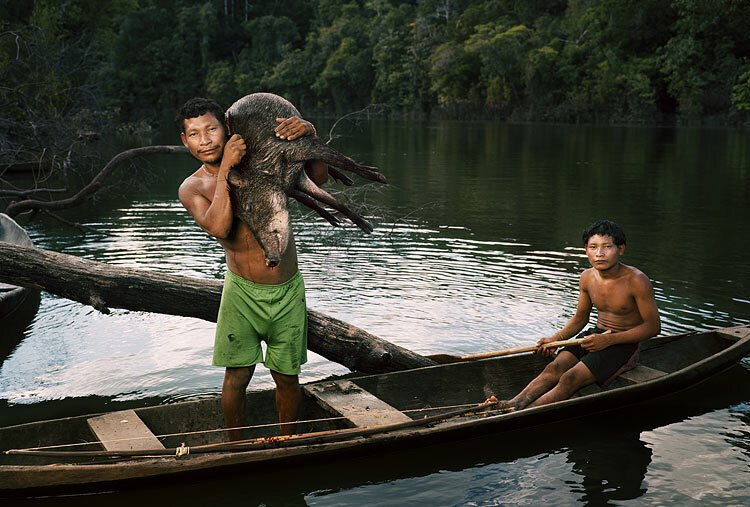
Pirahã people
But what I think is especially important is that in the life of the Pirahã Indians there is no such thing as “private property.” House, things, household items, tools of labor and hunting, clothing and even land are all common, and everyone can take what they need at the moment. Food - please, clothes - you are welcome, land - use it for your health! 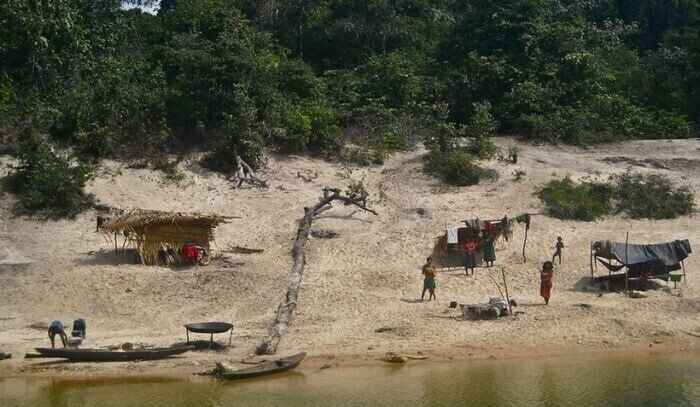
Pirahã people
Well, the forest and the river are even more common, because in these territories the resources and food necessary for the entire tribe are obtained. And since everything is common, then the Pirahã Indians do not know what enmity based on the division and distribution of goods is, so they consider themselves the happiest people on the planet. And you can’t argue... 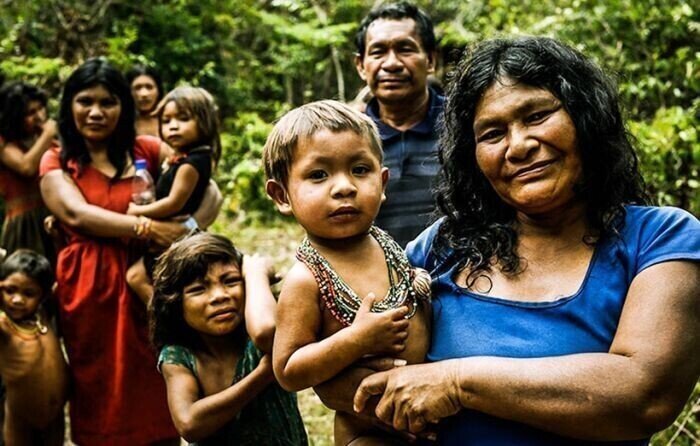
Pirahã people





















